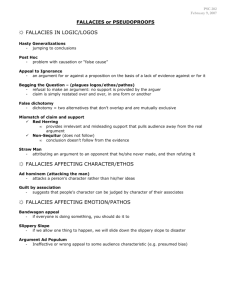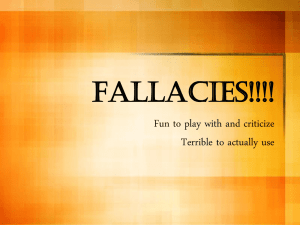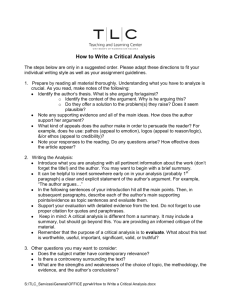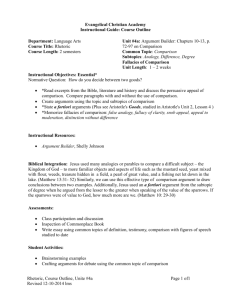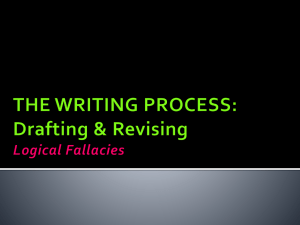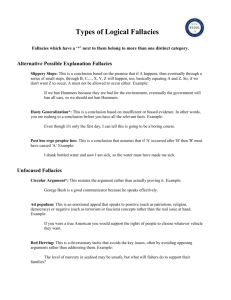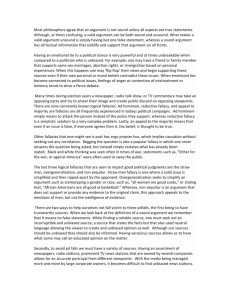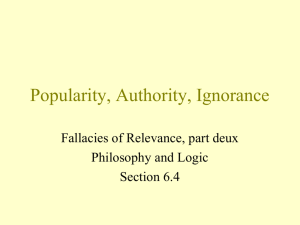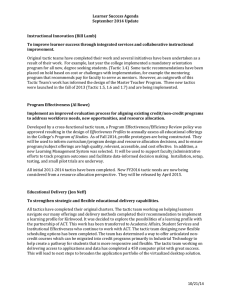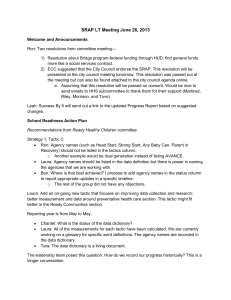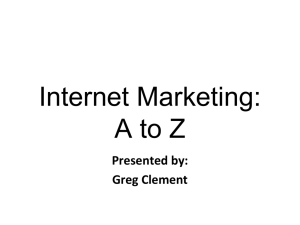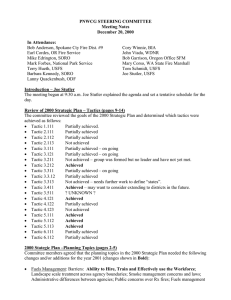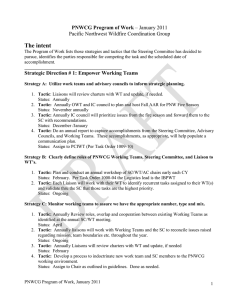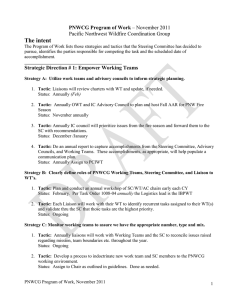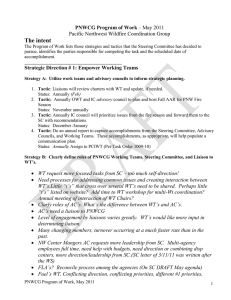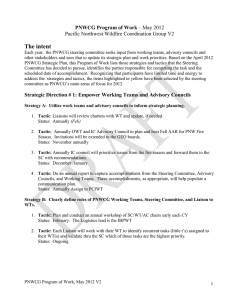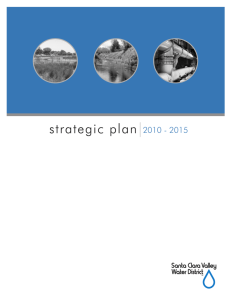Fallacies in Argument - College of the Siskiyous
advertisement
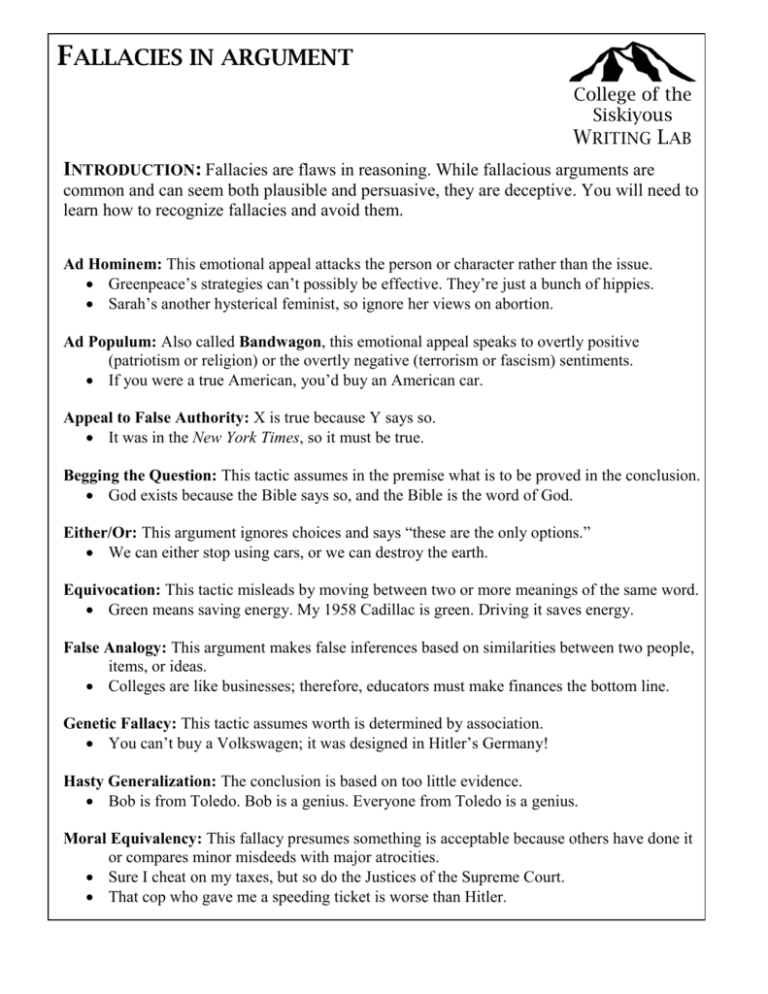
FALLACIES IN ARGUMENT AAAARGUMENT College of the Siskiyous WRITING L AB INTRODUCTION: Fallacies are flaws in reasoning. While fallacious arguments are common and can seem both plausible and persuasive, they are deceptive. You will need to learn how to recognize fallacies and avoid them. Ad Hominem: This emotional appeal attacks the person or character rather than the issue. Greenpeace’s strategies can’t possibly be effective. They’re just a bunch of hippies. Sarah’s another hysterical feminist, so ignore her views on abortion. Ad Populum: Also called Bandwagon, this emotional appeal speaks to overtly positive (patriotism or religion) or the overtly negative (terrorism or fascism) sentiments. If you were a true American, you’d buy an American car. Appeal to False Authority: X is true because Y says so. It was in the New York Times, so it must be true. Begging the Question: This tactic assumes in the premise what is to be proved in the conclusion. God exists because the Bible says so, and the Bible is the word of God. Either/Or: This argument ignores choices and says “these are the only options.” We can either stop using cars, or we can destroy the earth. Equivocation: This tactic misleads by moving between two or more meanings of the same word. Green means saving energy. My 1958 Cadillac is green. Driving it saves energy. False Analogy: This argument makes false inferences based on similarities between two people, items, or ideas. Colleges are like businesses; therefore, educators must make finances the bottom line. Genetic Fallacy: This tactic assumes worth is determined by association. You can’t buy a Volkswagen; it was designed in Hitler’s Germany! Hasty Generalization: The conclusion is based on too little evidence. Bob is from Toledo. Bob is a genius. Everyone from Toledo is a genius. Moral Equivalency: This fallacy presumes something is acceptable because others have done it or compares minor misdeeds with major atrocities. Sure I cheat on my taxes, but so do the Justices of the Supreme Court. That cop who gave me a speeding ticket is worse than Hitler. Non Sequitur: A claim is stated that does not follow from the premise. Rashid loves to eat; he’ll make a great chef. Post Hoc Ergo Propter Hoc: Just because A happened before B does not mean that A was the cause of B. Ever since I walked under that ladder, I’ve had nothing but bad luck. Red Herring: This argument uses a diversionary tactic to avoid key issues. Sure the levels of mercury in seafood are unsafe, but what will fishermen do to support their families? Scare Tactics: This argument exaggerates danger; creating fear is not evidence. Encouraging democracy in Egypt will result in an Islamic terrorist state. Sentimental Appeal: This argument uses excessive emotions to distract from the facts. Please don’t neuter Tabby; her kittens would be so cute and cuddly. Slippery Slope: This tactic exaggerates the consequences of an action to frighten the audience. If we ban Hummers to protect the environment, then the government will ban all cars. Straw Man: This argument oversimplifies the issue and then attacks it as being hollow. If you question global warming, you must not care about the future. The senator says we should not fund the new submarine program. Why would he leave us defenseless? Tu Quoque: This tactic claims the opponent is a hypocrite. How can you say I shouldn’t smoke! You smoked when you were my age.
